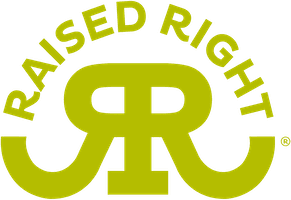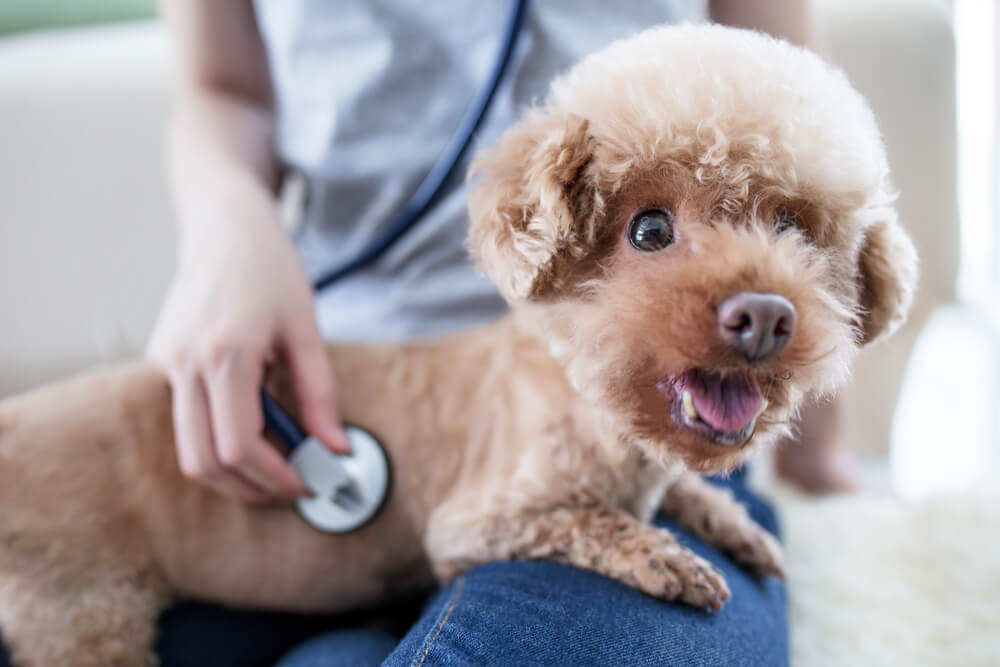
There’s nothing worse than having a cozy night in with your family spoiled by foul smells wafting over from your dog! Of course, it’s not your poor pooch’s fault if they have bad gas, but it’s certainly unpleasant. It’s not surprising that diet has a huge part to play in keeping your dog’s gut healthy, but did you know that bad diet choices can cause your dog to have flatulence? Let’s find out some of the possible reasons why your dog might suddenly develop bad gas.
Why might your dog have bad gas suddenly?
Some dogs are a little bit windy normally, and just like humans pass wind, it’s very normal for dogs too. However, excessive or foul-smelling flatulence can be a sign that something is wrong, especially if it’s a new symptom. Here are some of the possible causes of bad gas in dogs:
Change in diet
If you change your dog’s food, there’s a chance it could upset their gut, especially if you don’t do it gradually. This might mean they get vomiting and diarrhea, but equally bad gas might be their only symptom.
The wrong dog food
Not all dog foods are created equal, and what your dog puts in their mouth can directly affect their health. Fiber is important for forming stool bulk and keeping the intestines healthy, while lots of different proteins could trigger an allergy leading to flatulence, diarrhea, or itchy skin. Learn about the types of proteins your dog can eat: cooked chicken, cooked turkey, beef and pork. It’s also worth noting that, while your dog needs some carbohydrates for energy, carbohydrates get broken down into glucose (sugar). Too much glucose is involved in the process of inflammation throughout the body, meaning that all chronic inflammatory conditions use glucose. By feeding your dog a diet that’s low in carbohydrates, you won’t just keep them trim and potentially reduce their risk of diabetes, but you will also likely reduce inflammation.
Scavenging
Even if you haven’t changed your dog’s diet, if they pick something up and help themselves while on a walk or investigating the trash, the effect on their gut will be the same. So, if your dog snatched and ate someone’s leftover fries, ice cream, or any other discarded food, you might be facing a few days of flatulence.
Certain human foods
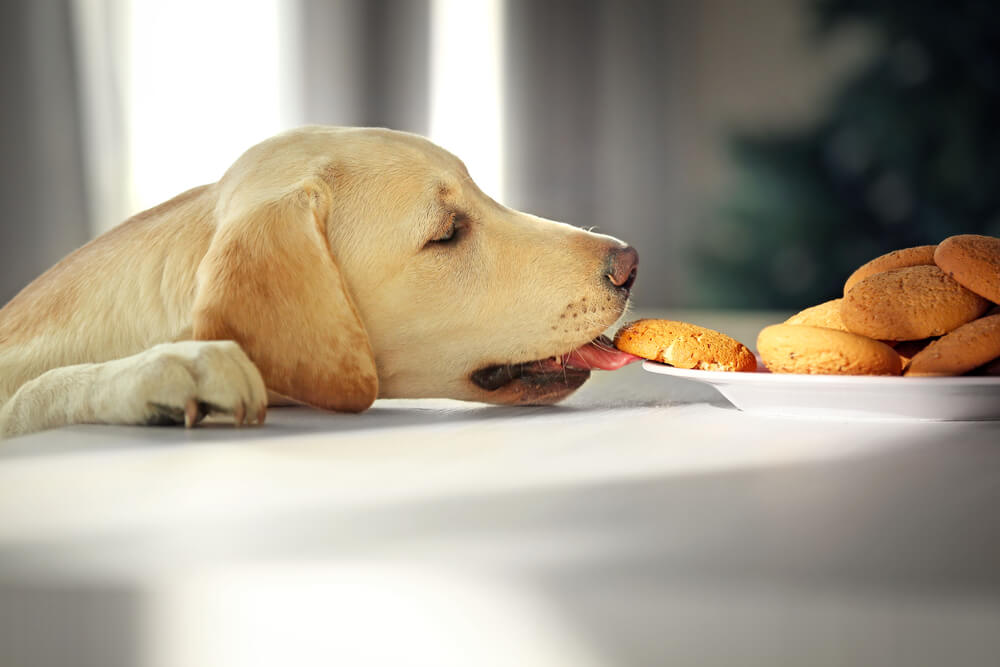
Feeding your dog certain human foods carry the risk of poisonous foods like onions, garlic, and chocolate.
If you like to share tidbits from your plate with your dog, it’s a nice gesture. After all, giving them something tasty is a lovely way to show you care. However, aside from the risk of poisonous foods like onions, garlic, and chocolate, your leftovers might not agree with them and could lead to gas, vomiting, or diarrhea.
Extra treats
Treats aren’t always a bad thing, and they can be an important part of training and bonding with your dog. Too many treats or the wrong type of treat won’t just cause your pooch to pile on the pounds, but it could also give them a tummy upset, especially if they’re sensitive.
What other symptoms might you notice?
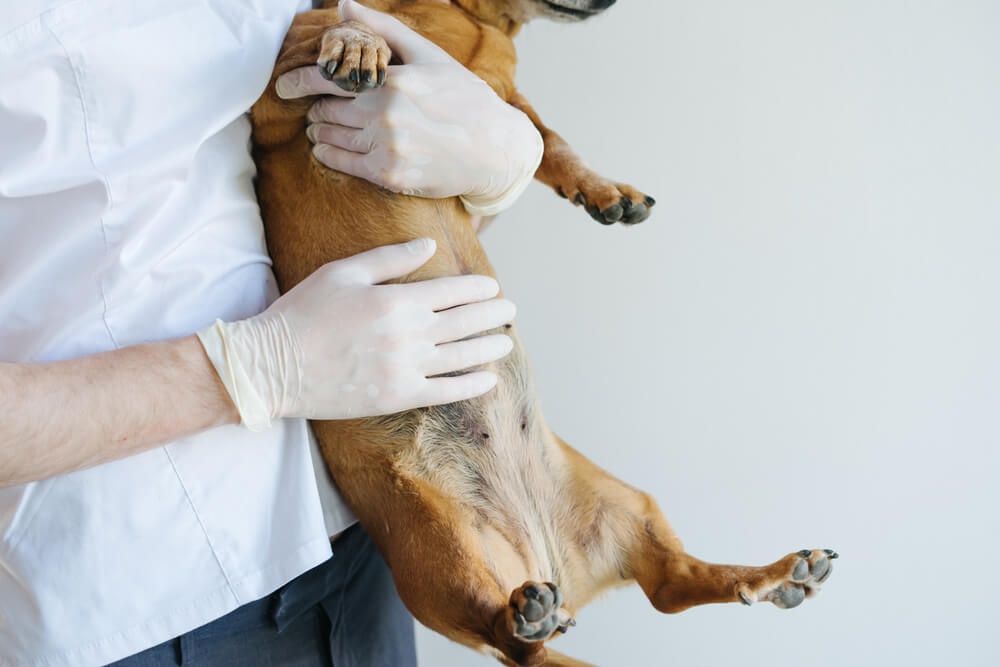
Gurgling is usually the sound of gas pockets and digested food moving around excessively due to increased peristalsis of the intestines.
Although gas can be a symptom on its own, it’s also quite common to see other gut symptoms at the same time.
Bad gas and vomiting
If your dog has bad gas and is vomiting, it could mean that they have an infection, a food allergy, gastritis (an inflamed stomach), or even pancreatitis. If your dog is acting unwell or isn’t eating or drinking, you should seek veterinary advice.
Bad gas and diarrhea
Like vomiting, bad gas and diarrhea could be caused by an infection or a food allergy, but other causes include enteritis, colitis, and parasites.
Bad gas and a gurgling stomach
Sometimes, if our dog’s stomach or intestines are irritated, we might hear gurgling sounds from their belly. This is usually the sound of gas pockets and digested food moving around excessively due to increased peristalsis of the intestines.
Bad gas and panting
If your dog has bad gas and is panting, it could mean they’re uncomfortable or in pain. Bloating and trapped wind can be really painful in humans, and this is also the case in dogs. You might also notice that your dog seems restless and can’t get comfortable.
What does it mean if your old dog has bad gas?
There are lots of reasons why old dogs might have bad gas. Firstly, they may not have the muscular control of their rear end the way that they used to, which might mean incontinence or increased flatulence due to wind accidentally escaping. Your old dog’s gas could also be caused by dietary changes, infections, parasites, and inflammation, and you might find that your old dog’s intestines become more sensitive with age.
How can you help your dog with bad gas?
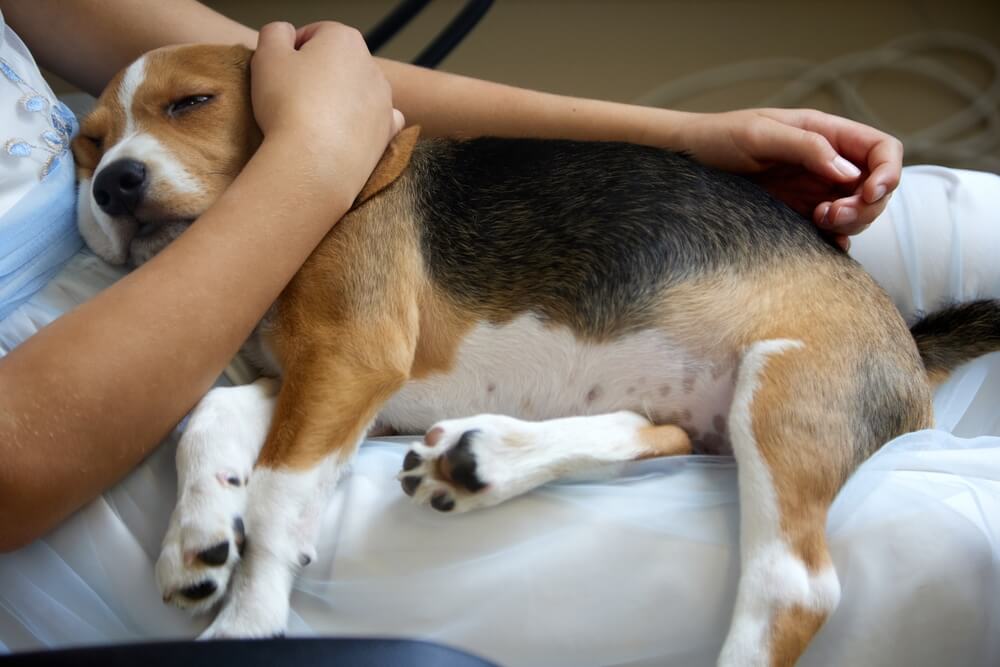
There are a few ways to help your dog with ‘doggy farts’ or ‘dog flatulence’, and the most common one is by changing their diet.
Sadly, there’s no particular gas relief home remedy, yet there are a few things you can do! Many cases improve after a few days of feeding a bland diet. If your dog’s current food seems to cause them to have gas, it might be worth switching to a low carb limited ingredient diet that contains plenty of fiber. Whenever you change your dog’s diet though, make sure you do it gradually to give their gut time to adapt.
Summary
If your dog has bad gas, it’s pretty unpleasant. Luckily, by choosing the right diet you can keep their gut as healthy as possible, meaning fewer nasty smells and a more comfortable canine!
FAQ
Should I be worried if my dog has bad gas?
If your dog has bad gas, it might just mean that they have eaten something they shouldn’t have or something hasn’t agreed with them. However, you should always speak to a veterinarian if they are acting unwell or have any other symptoms.
What can I give my dog for horrible gas?
It’s best not to give your dog any medications without checking with the veterinarian first. Feeding a bland diet could help to settle a mild gut upset. If your dog is still having flatulence after a day or two, though, contact your veterinarian.
